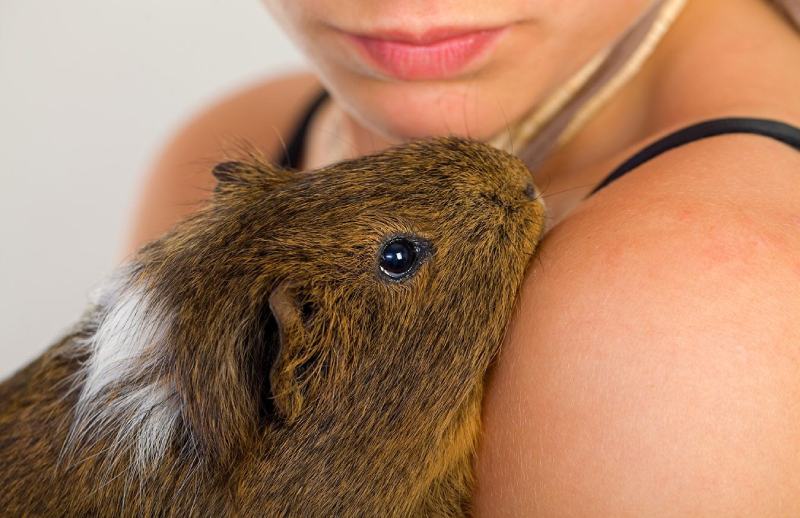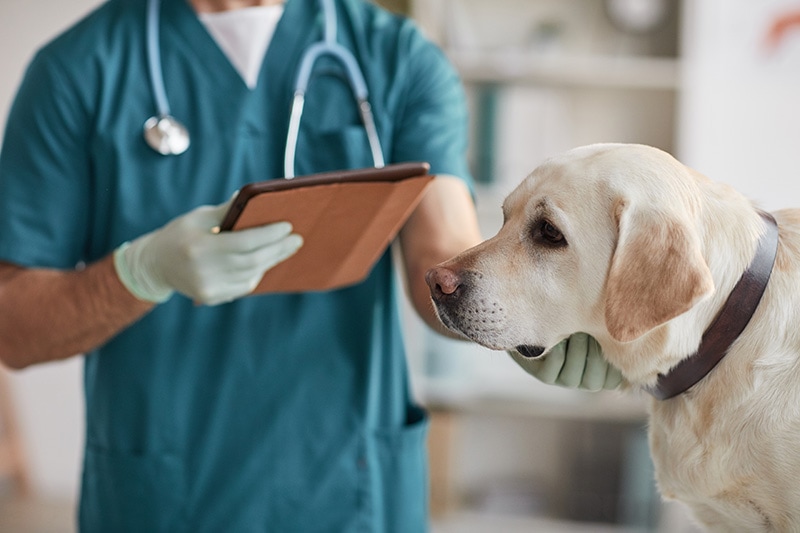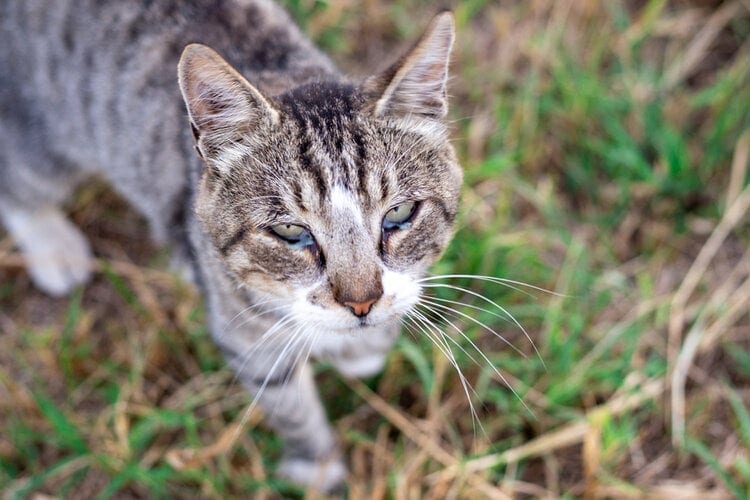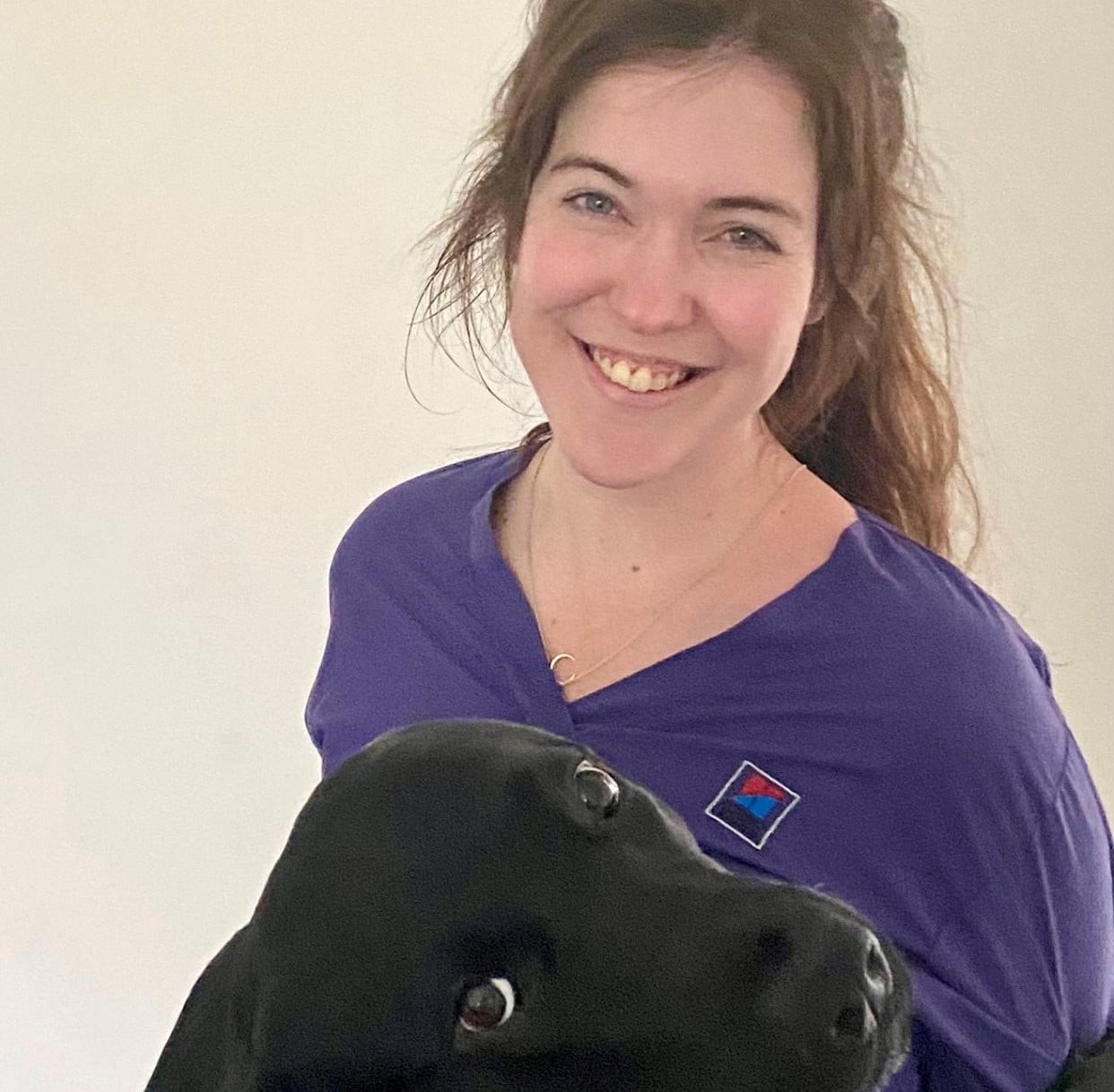Can Guinea Pigs Get Rabies? (Vet Answer)

Updated on

Click to Skip Ahead
When some people hear the word “rabies”, they often think this only affects dogs. After all, you take your dog in to receive their rabies vaccine regularly every 1 to 3 years. But what about other small mammals like guinea pigs? No one has ever suggested a rabies vaccine for your guinea pig. Is that something you need to worry about? Do guinea pigs get rabies? While any mammal can get rabies, pet guinea pigs are unlikely to contract the disease.
What Is the Rabies Virus?
Rabies is a zoonotic virus, meaning it can be transmitted between animals and people. It is a fatal disease, but we can prevent its spread with vaccinations.
Rabies is typically transmitted through saliva, but you can also get rabies through brain tissue, scratches, and open wounds. Vaccination programs have dramatically decreased rabies in domestic animals in the United States. However, it is still a concern in certain places around the world. In the United States, several wild animal species are considered common carriers for the virus, including:
- Raccoons
- Bats
- Skunks
- Foxes

Can Guinea Pigs Get Rabies?
While any mammal can get rabies, your guinea pig is unlikely to contract the disease.
- First, guinea pigs are kept indoors and caged away from possible disease carriers. It’s rare for a raccoon or fox to get into your house (although certainly not impossible, so keep this in mind if they do get inside).
- Next, as sad as it is to say, if your guinea pig gets attacked by a rabid animal, they’re not as likely to survive their injuries as a dog might be, so there’s less chance of them developing the disease after exposure.
That said, there have been cases of rabies detected in guinea pigs in the United States. The Journal of the American Veterinary Medical Association highlighted a case where a guinea pig likely became infected with rabies after being exposed to a raccoon outside, and there have been other reports extending across previous decades.
Signs of Rabies in Guinea Pigs
The signs of rabies that we would look for in guinea pigs are similar to those among all mammals.
Most affected animals change their demeanor. They might become more affectionate but more likely to become withdrawn or aggressive. Even previously docile animals might bite.
Some animals have excessive drooling or foaming at the mouth. Animals with rabies might stagger or even have paralysis. Other neurologic signs include convulsions or seizures.

Rabies Prevention in Guinea Pigs
You’ll need to prevent rabies in guinea pigs to prevent their possible exposure. If you have another pet that goes indoors and outdoors, keep it vaccinated and away from your guinea pig if it encounters a rabies-infected animal, such as your dog attacking a raccoon in your yard.
If your guinea pig goes outside sometimes to stretch its legs and enjoy some grass, you should observe it closely. Don’t let it out unsupervised, which is also essential to minimize the risk of being preyed on by larger animals. You could also consider a fully enclosed cage to reduce the risk of it coming into contact with other animals.
What to Do if Your Guinea Pig Bites You
If you’re concerned about possible exposure to a rabid guinea pig, contact your veterinarian and your human physician immediately. Typically, animals possibly exposed to rabies are monitored for some time. Your veterinarian will usually work with several public health people and possibly animal control to determine what steps should be taken.
If the animals show signs that could be consistent with rabies, they have to be euthanized and tested. Your veterinarian will submit tissue for testing, usually at a city or state laboratory.
Your physician won’t typically recommend an anti-rabies vaccine unless there’s been a possibility of exposure, as guinea pigs are unlikely to contract rabies. That said, your physician will likely clean and flush your wound. You might need antibiotics or a tetanus booster vaccination for a nasty wound. Your physician will work with you to determine possible exposure and recommend treatment.
Frequently Asked Questions
Can I get rabies from guinea pigs?
While guinea pigs can have rabies, it is very rare in the United States for many of our small pets to get the virus, including:
- Rabbits
- Hamsters
- Rats
- Mice
- Squirrels
- Chipmunks
Because it’s so rare, it would be incredibly uncommon for you to get rabies from your guinea pig. The CDC reports that there haven’t been any cases of humans contracting the virus from these animals.

Do guinea pigs need rabies shots?
There isn’t a rabies vaccine labeled for use in guinea pigs. If your veterinarian recommends it, they’d be using the vaccine off-label, and we don’t know how effective it would be. Typically, we don’t give guinea pigs vaccines.
What animals do not get rabies?
Some animals do not appear to be able to get rabies. While any mammal can technically get infected with the virus, these animals don’t:
- Birds
- Reptiles
- Amphibians
- Fish
Conclusion
Guinea pigs can get rabies, but it’s very uncommon for them to be exposed to the virus, let alone contract it. If you’re concerned that your guinea pig could have been exposed to a rabid animal, you’ll need to contact your veterinarian immediately to determine the next steps you’ll take.
Featured Image Credit: PHOTO FUN, Shutterstock












